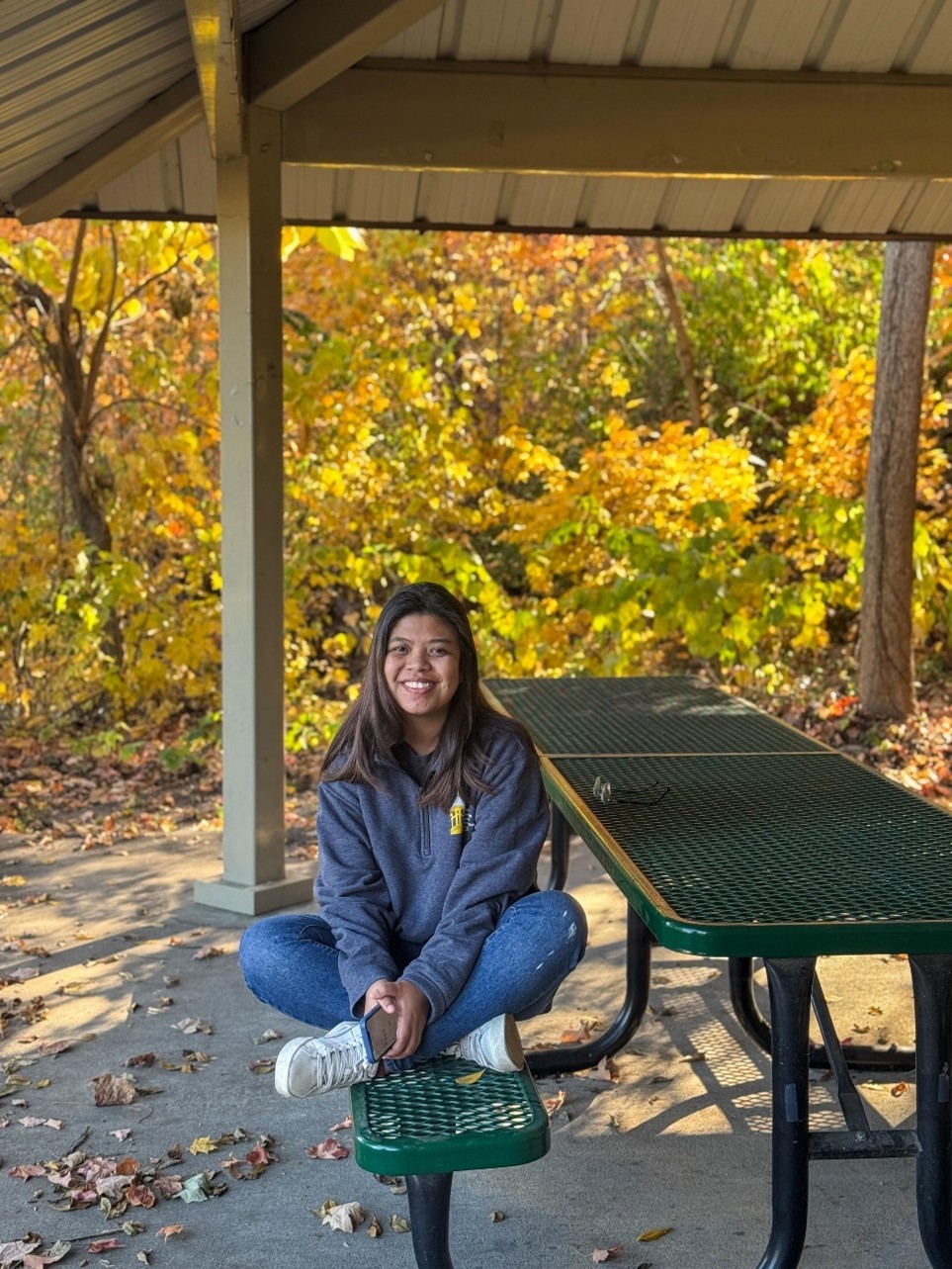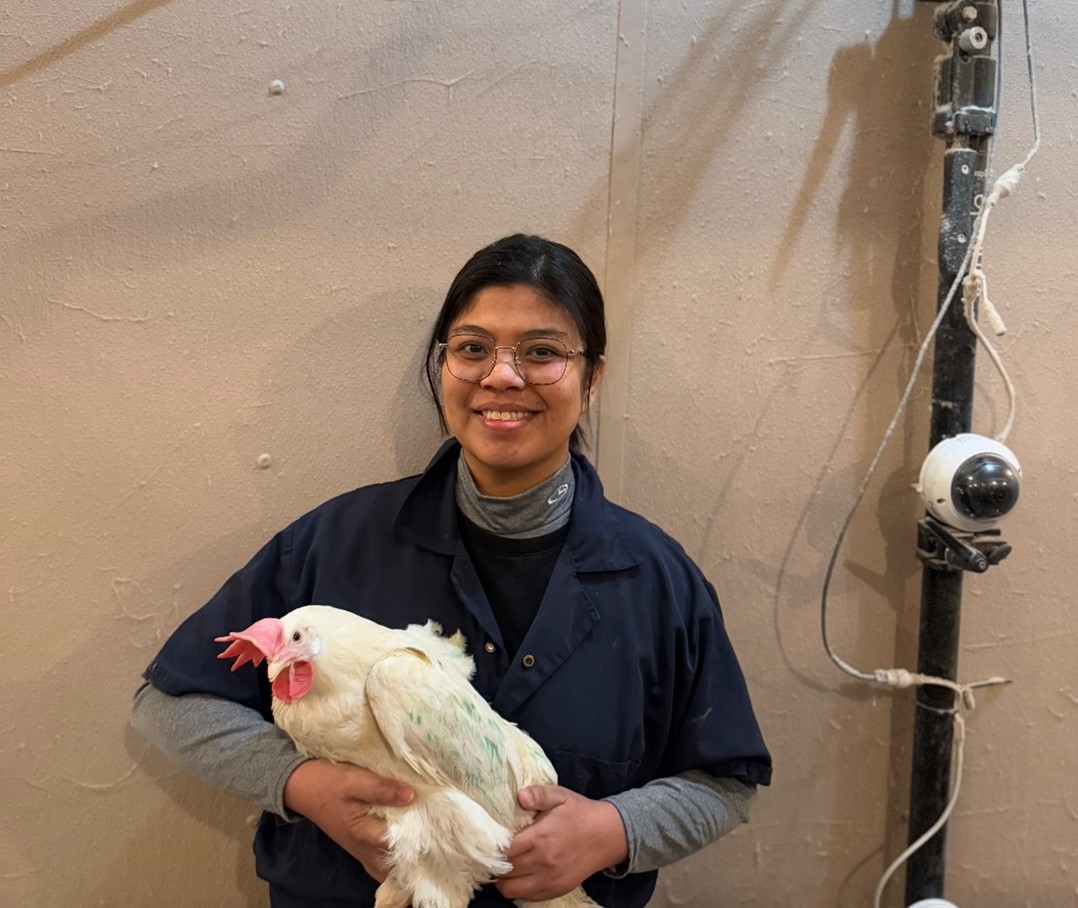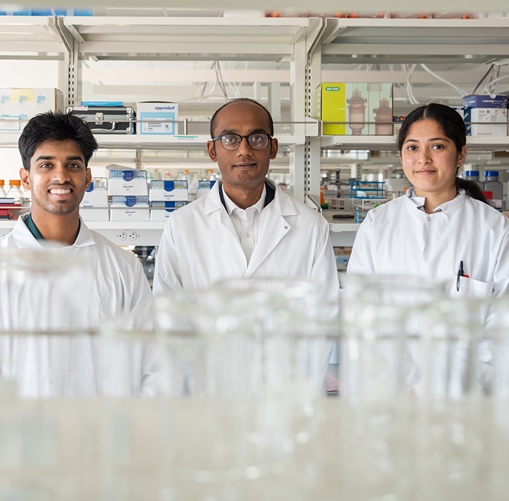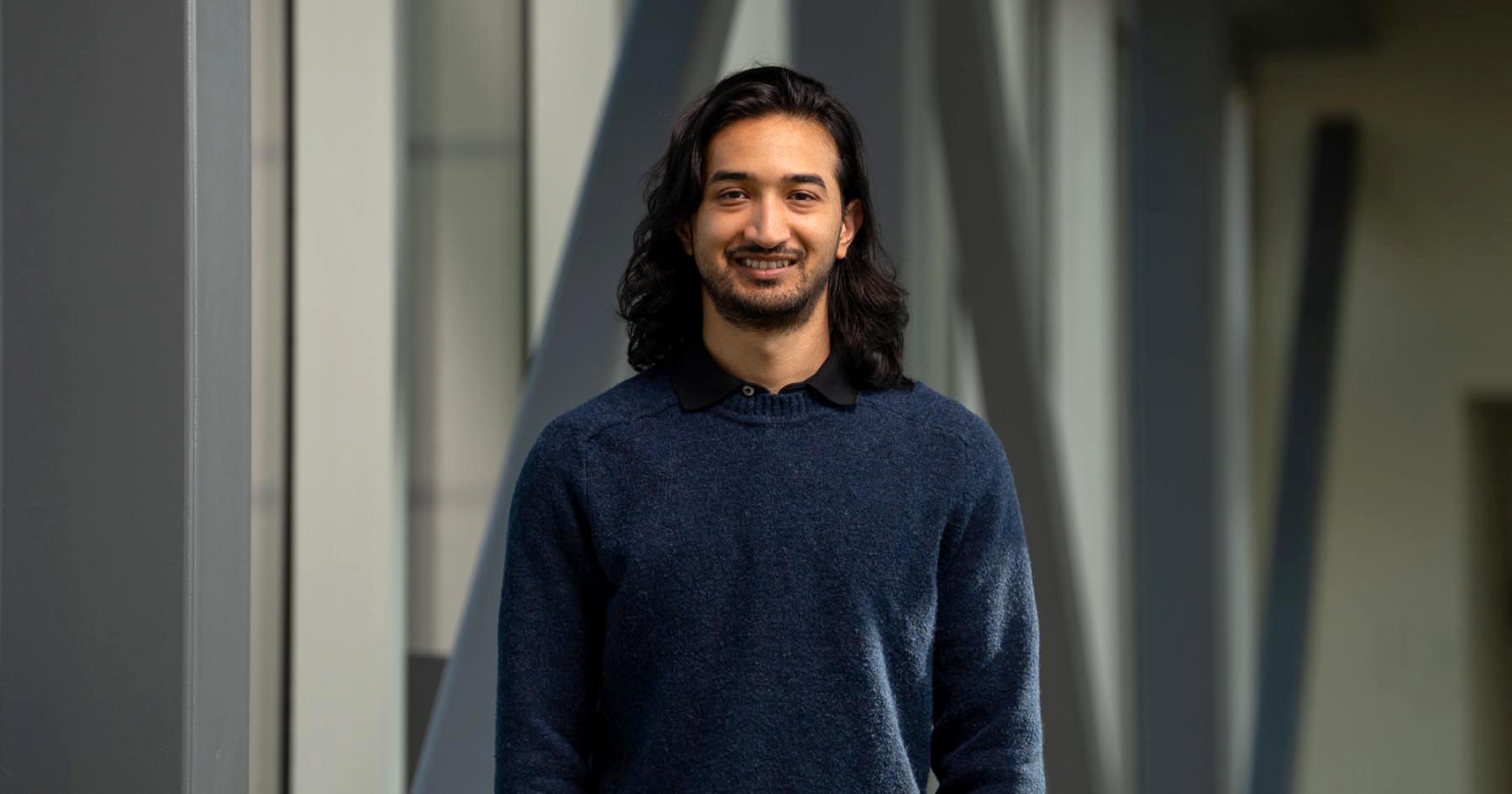Graduate Student Spotlight: Harliqueen Jacinto
Harliqueen Jacinto, a graduate student from the Philippines, is pursuing her master’s degree in animal sciences with a focus on animal welfare and behavior under Marisa Erasmus, Associate Professor of Animal Sciences.

Jacinto has a fisheries science background, receiving her bachelor’s degree in fisheries from Central Luzon State University in the Philippines and a master’s degree in fisheries science from Pukyong National University in South Korea.
Although her academic journey began in aquaculture, Jacinto is pursuing a degree in animal sciences to broaden her knowledge.
“Transitioning from fisheries to animal sciences was a big shift, but I took this step of studying animal science to expand my expertise and work toward becoming an animal welfare scientist,” Jacinto said.
Jacinto said her transition has been her greatest accomplishment during her time at Purdue.
“My biggest accomplishment so far is successfully transitioning from fisheries to animal science and making meaningful contributions to animal welfare research,” Jacinto said. “I have also grown professionally by networking and participating in research projects.”
Recognizing the value of seizing new opportunities, Jacinto advises incoming graduate students to embrace new challenges.
“My advice to incoming graduate students is to stay open to learning and adapting,” Jacinto said. “Graduate school is a time for growth and stepping outside their comfort zone will help them develop new skills and perspectives and Purdue has so much to offer, so take advantage of every opportunity.”
According to Jacinto, Purdue was her top preference because of its reputation and the opportunities it provides.
“Purdue was my top choice because of the school's reputation as one of the best institutions for agricultural research and innovation,” Jacinto said. “Also, the distinguished faculty members and collaborative research opportunities in Purdue are invaluable for my academic and professional growth.”
Jacinto’s research revolves around animal welfare and behavior. She studies cold stress and its impact on laying hens, which can ultimately improve the management practices and welfare of the animals.
“This role has given me hands-on experience in scientific research, data interpretation and animal management, specifically on animal welfare and behavior, all of which are essential for my future career,” Jacinto said. “It has also enhanced my ability to work with other researchers, and it allows me to prepare for real-world challenges in animal welfare science.”

According to Jacinto, the department’s faculty and students are the greatest strengths of the program.
“The supportive faculty and students make the Purdue Animal Sciences’ graduate program stand out,” Jacinto said. “Everyone is willing to help and share knowledge. This culture of teamwork helps students excel in research, academics and professional development. There are also many research opportunities to explore in different areas of animal science.”
Outside of her graduate studies, Jacinto is involved in (MANRRS) and the Animal Sciences Graduate Student Association. Jacinto said both of these organizations provide many opportunities for networking, leadership development and career advancement in the agriculture industry.






